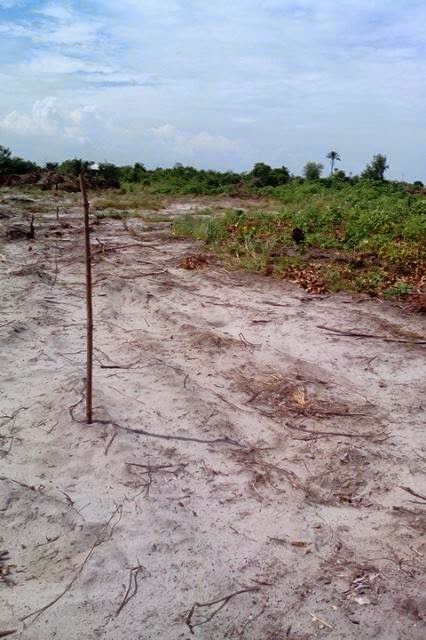Experts remain upbeat about housing, mortgage finance growth
The housing and housing finance sector will grow in leaps in the coming months, experts in the sector have predicted.
Some of the experts, who spoke on the outlook for the different aspects of the sector for
this year, were positive that the steps that were taken to reduce the
housing deficit in the country in 2013 would be consolidated in 2014.
According to them, the predictions that
the country’s economy will grow at a steady rate this year will rub off
on the housing sector.
The President, Nigerian Institute of
Building, Mr. Tunde Lasabi, said more developers would come into the
sector in the course of the year.
He also expressed the hope that the
Federal Government would facilitate the availability of building
materials by reducing the import duty on them.
Lasabi said, “On the part of
professionals, I expect a better collaboration, especially within the
NIOB, so as to tackle fake materials. I expect that more private
individuals will participate in activities in the housing sector.
“With a better economy, people are bound
to put their resources into the sector either for sale, lease or
ownership. We expect more professionals to be used by the government to
prevent the scourge of building collapse. When buildings collapse, a lot
of things are lost and it is not good for our economy, and a lot of
these are caused by the use of fake materials and quackery.”
Experts also expressed optimism about
improvements in the housing finance sector, especially with the expected
take-off of the Nigerian Mortgage Finance Company.
The President, Mortgage Banking
Association of Nigeria, Mr. Femi Johnson, said the recapitalisation of
mortgage banks was a pointer to a better mortgage finance system in the
country.
He said, “The CBN has increased the
capital base of mortgage banks and come January, it will announce the
new mortgage banks that will operate; maybe about 40 or 50 from the 80
that we have now; so, there are going to be bigger mortgage banks that
can now lend longer because they have the capital.
“There is going to the NMRC that will
take off maybe by the end of the first quarter and refinance loans at
lower interest rates of 13- 15 per cent for 20 years so definitely,
there will be an improvement when all these monies come into the system.
There will be new long term funds that are going to come into the
system and so these banks will be able to finance mortgages for longer
terms.”
According to Johnson, the NMRC already
has loan of about $250m at 0.75 per cent interest for 40 years and with a
10-year moratorium from the World Bank. The mortgage company will raise
money from the capital market through government guaranteed bonds.
He stated, “The NMRC will be able to
raise money that pension fund will be able to invest in. Today we have
about N4tn to N5tn of pension funds in the market, and once the fund is
government guaranteed, Pension Fund administrators will be able to
invest in it; so, this money will be channelled into housing.
“So, definitely there will be a lot of money channelled into housing and housing finance this year; the outlook is bright.”
A private developer and Chief Executive
Officer, PropertyGate, Mr. Adetokunbo Ajayi, said 2013 witnessed a pick
up after the lull in the sector, which began in 2008, and the momentum
that was gathered were expected to be improved upon in the course of the
year.
He said, “We had a relatively strong
showing on a comparative basis in 2013; so, we expect that it should
continue in 2014. There has been an enabling environment and the
financial institutions are also doing well by making mortgages
available; we expect that things will improve from that end, especially
with the coming on board of the NMRC.
“As the economy also improves, there will
be access to housing from the financial capacity of the consuming
public; when you look at these, they are pointers that we will have a
better year than 2013.”
However, while many experts say the
sector will witness huge growth, there are others who think that there
may not be much difference from what happened in 2013.
The Principal Partner, Ubosi Eleh and
Company, Mr. Chudi Ubosi, said access to credit was a problem in the
previous year and needed to be improved upon in 2014.
“If what happened in 2013 is what will be
repeated this year, there may not be much difference. For a couple of
reasons, the major problems still remain lack of access to credit; if it
is not improved upon, it will remain a major problem. And when it is
available, it is still too expensive at 20 to 25 per cent interest; this
is still a problem,” he said.
Ubosi added that even if the NMRC took off, it might not make a big difference in the sector.
He said, “I am not sure we have the
framework for it to take off, but even if it takes off, I don’t see its
effect that much until two years or more.
“There is also poor
information flow in the country; so, a lot of people will not know about
it, it is only the professionals like us that know and not the common
man out there. I don’t expect a major deviation from what happened last
year.”
Source: The Punch Newspaper


Comments
Post a Comment